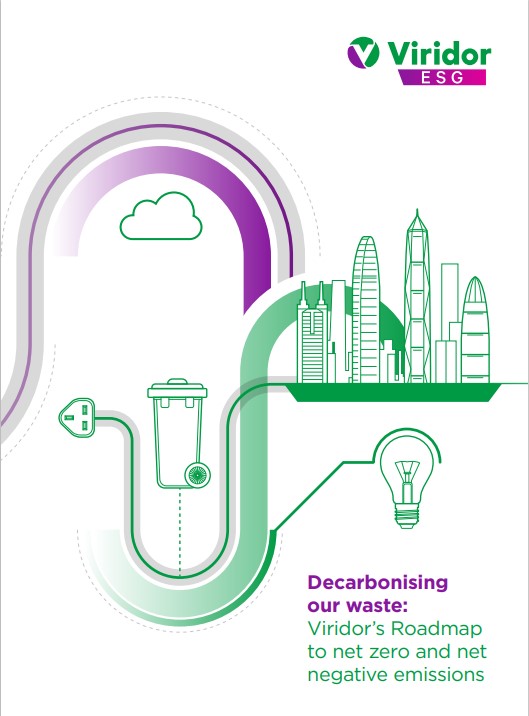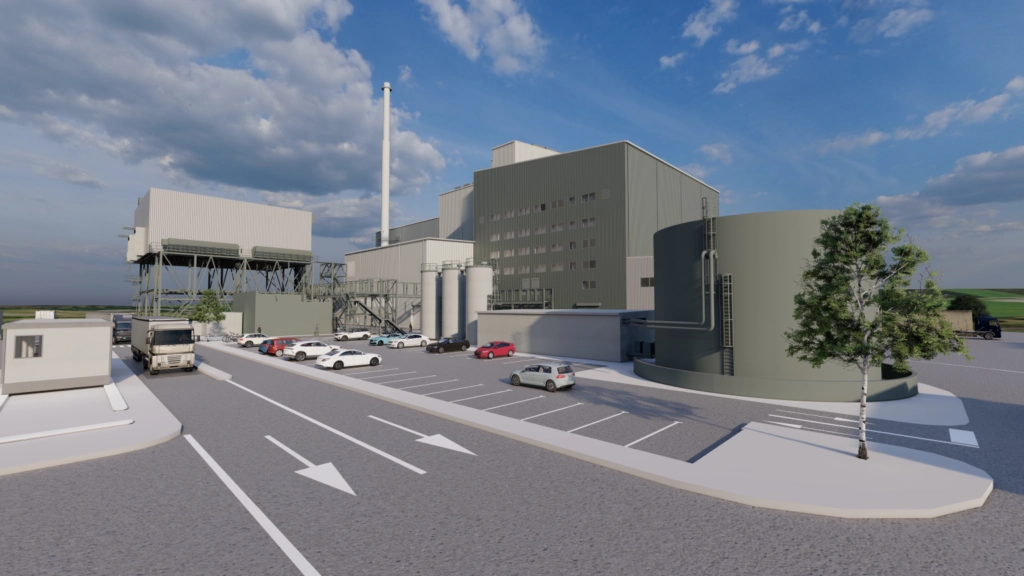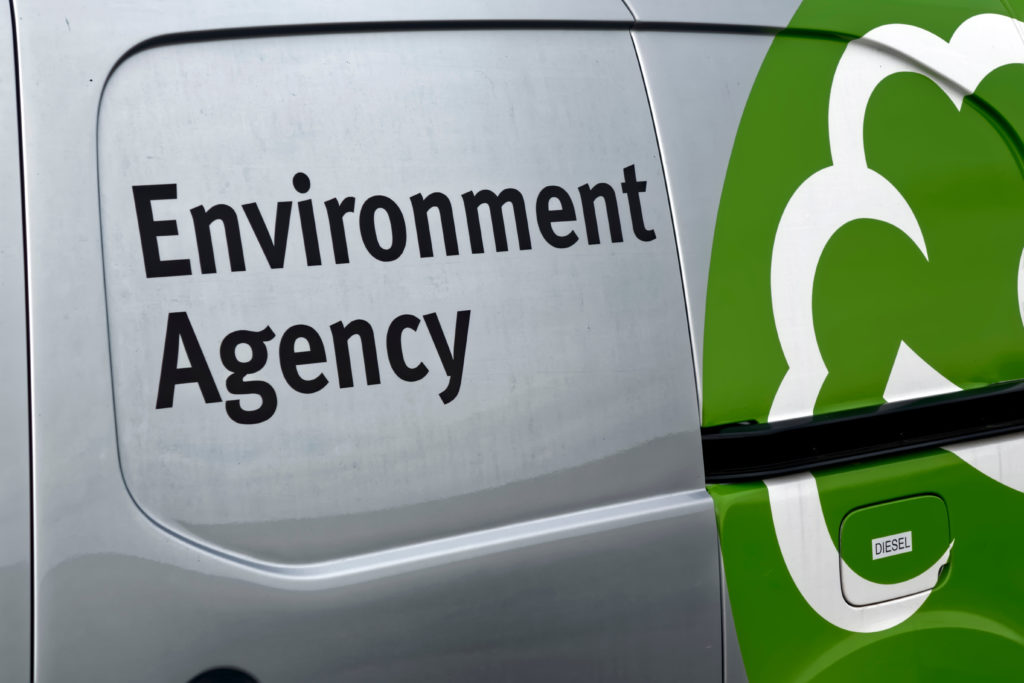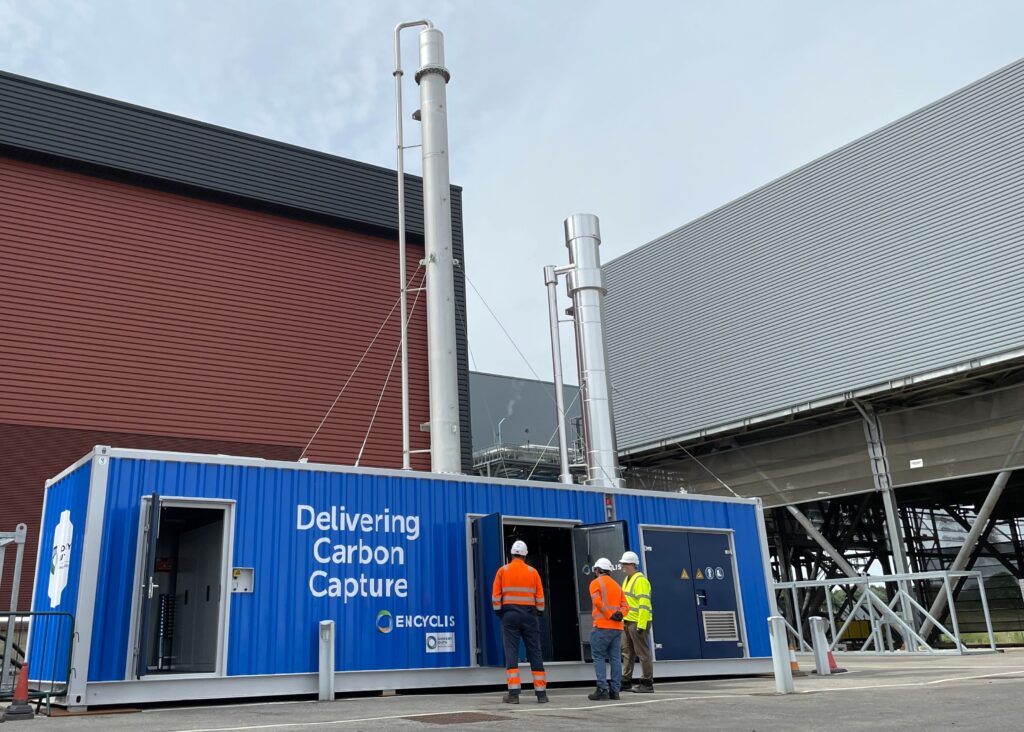The video interview (see below) is with Viridor’s Dr Tim Rotheray, director of innovation, regulation environment and sustainability, and Edita Adamcikova, the company’s carbon and circular economy senior manager
Explaining the aim of achieving ‘Net Zero emissions’ by 2040 and being ‘Net Negative’ by 2045, Ms Adamcikova said: “We are really delighted to make this commitment. We are the UK’s first waste company committed to becoming carbon positive and turning waste which is anticipated as a problem, into something which can become a solution.”
The carbon specialist continued: “The timelines were defined on the back of a comprehensive technology policy and a data assessment showing us that there are three critical goals we have to work towards.”
Goals
Ms Adamcikova explained that the first one is about reducing the amount of waste that is being produced in the first place. A second goal is to boost recycling, whether by better design or recyclability of the packaging and achieve the UK recycling targets with infrastructure in place “which can actually make this happen”.
“The third one is decarbonising the remaining non-recyclable waste, the most feasible technology for that at the moment seems to be carbon capture and storage.”
Carbon cycles
And, Ms Adamcikova explained the carbon cycle rationale behind the need to remove plastic materials from the residual waste stream and to keep them out of energy recovery plants.
“There are two different carbon cycles,” she said. “One is the carbon cycle which is natural/biological and then there is the man-made carbon cycle which is the reason for climate change, releasing the carbon which has been locked into fossil fuels and now being released.”
She described how with processing waste in a energy from waste facility, the waste is composed of man-made waste which is mostly plastic, fossil derived waste along with biological waste, for example banana peel and paper. Importantly if all this carbon was captured, Viridor could actually become negative because not only is the fossil fuel carbon captured but also carbon from the natural stream (such as a banana peel and paper).
Plastic

Sector
Asked if Viridor will need the involvement of others to meet these deadlines, Dr Rotheray said: “This is a problem which is bigger than Viridor so we have sought to set out our stall of what we think is achievable but also to make this very clear that we want to deliver this in partnership – it’s worth remembering that the entire waste and recycling sector has been created in response to a market failure.
“We need policy, just like it steers recycling and just like its steered landfill diversion, now to make sure it steers investment into decarbonisation. It’s not just the responsibility of government, we absolutely have the determination and responsibility to act but we can’t do it alone.”
“We are going to hit these targets and I am also more ambitious that we will beat them.”
Asked about the issue of electricity usage and consequently carbon generation in the recycling process, Dr Rotheray remarked that while the grid does need to be decarbonised along with greater energy efficiency, electricity production has become more decarbonised.
“We should always be looking and indeed we are looking to find ways of driving those processes but the grid has already decarbonised very dramatically in the last 10 years, coal in 2015 was something like 40% of power generation and its now 2%. So we’re already a long way along that journey and the more the grid decarbonises the lower carbon recycling will become.
Targets
In conclusion, Dr Rotheray was optimistic, describing how targets for climate change and interest in it was rising rapidly. “We are going to hit these targets and I am also more ambitious that we will beat them. Climate change is going up the agenda and it is going up the agenda faster.”








Subscribe for free